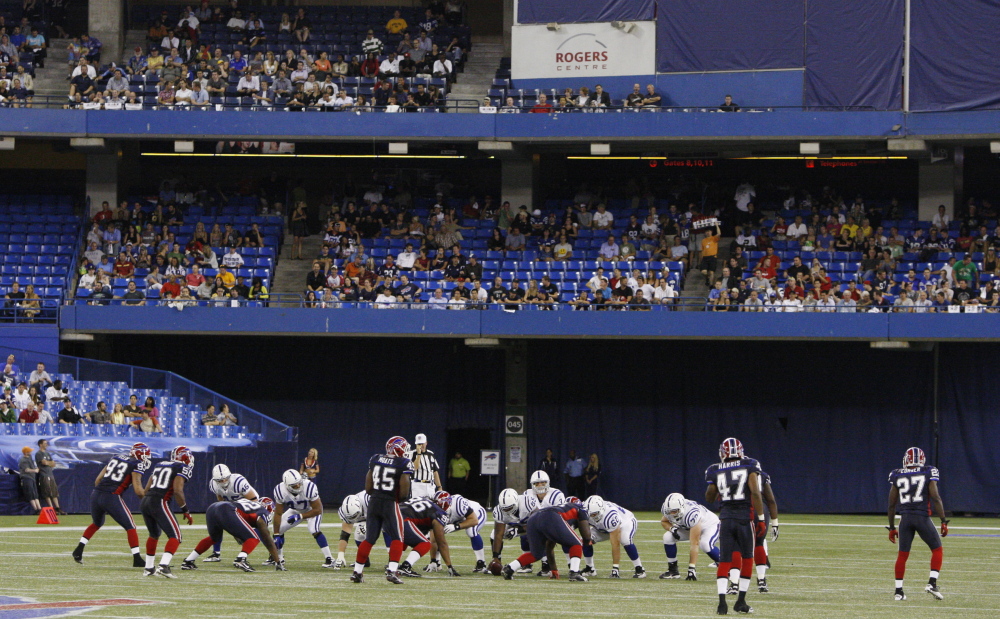WASHINGTON — Federal regulators on Thursday sacked the long-standing sports “blackout” rule that prevents certain games from being shown on television if attendance for the live event is poor.
In a bipartisan vote, the Federal Communications Commission unanimously agreed to strike down the much-criticized 40-year-old policy. Under the blackout rule, games that failed to sell enough tickets could not be shown on free, over-the-air television in the home team’s local market.
The FCC said the rule mainly benefits team owners and sports leagues, such as the NFL, by driving ticket sales, but does not serve consumers.
“For 40 years, these teams have hidden behind a rule of the FCC,” said FCC Chairman Tom Wheeler. “No more. Everyone needs to be aware who allows blackouts to exist, and it is not the Federal Communications Commission.”
The rule was put in place in 1975 amid concerns of flagging attendance at live sports events. At the time, almost 60 percent of NFL games were blacked out on broadcast TV because not enough fans were showing up at stadiums. Today, that figure stands at less than 1 percent, and professional football is so popular on TV that programming contracts contribute “a substantial majority of the NFL’s revenues,” said FCC commissioner Ajit Pai.
The NFL has warned that ending the blackout rule would hurt consumers by encouraging leagues to move their programming exclusively to pay TV. But Pai pushed back against those claims on Tuesday, saying teams can’t afford not to air their games on broadcast TV.
“By moving games to pay TV,” Pai said, “the NFL would be cutting off its nose to spite its face.”
The vote doesn’t mean that blackouts are going away immediately. The NFL still has blackout rules written into individual contracts with regional sports broadcasters. In general, those deals last until the beginning of the next decade. The FCC’s rule, which was struck down, essentially served as a stamp of approval for the NFL’s policy.
In new contracts, the NFL would have to renew those blackout provisions over the objections of the federal government.
On Tuesday, the FCC’s message was clear: If the NFL chooses that path, it will be the only one bearing the brunt of consumer ire, particularly from low-income Americans and the disabled who can’t make it or have a harder time getting to games.
Send questions/comments to the editors.



Success. Please wait for the page to reload. If the page does not reload within 5 seconds, please refresh the page.
Enter your email and password to access comments.
Hi, to comment on stories you must . This profile is in addition to your subscription and website login.
Already have a commenting profile? .
Invalid username/password.
Please check your email to confirm and complete your registration.
Only subscribers are eligible to post comments. Please subscribe or login first for digital access. Here’s why.
Use the form below to reset your password. When you've submitted your account email, we will send an email with a reset code.